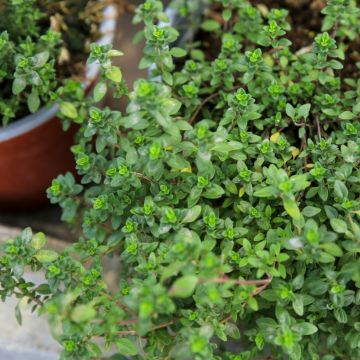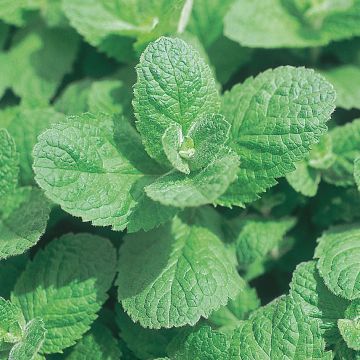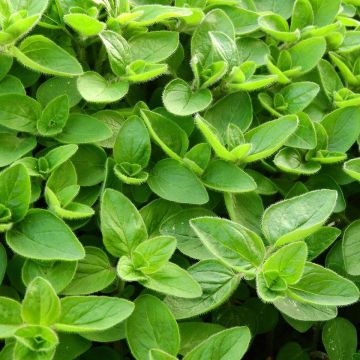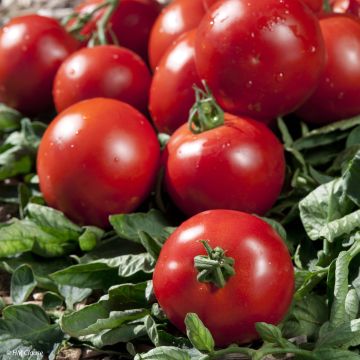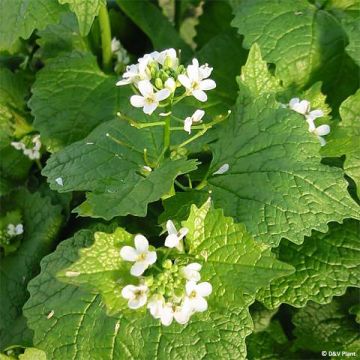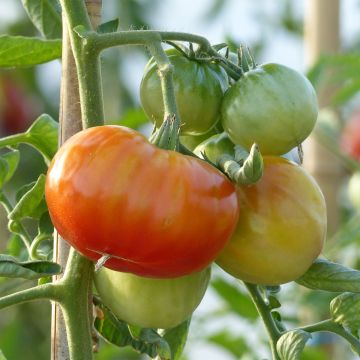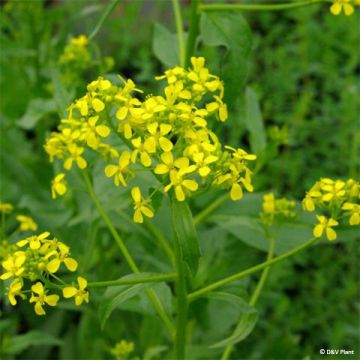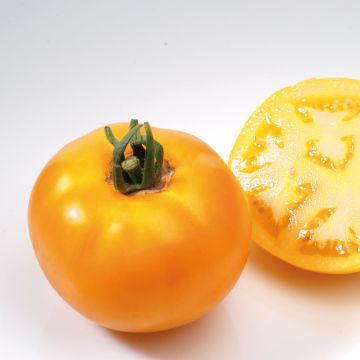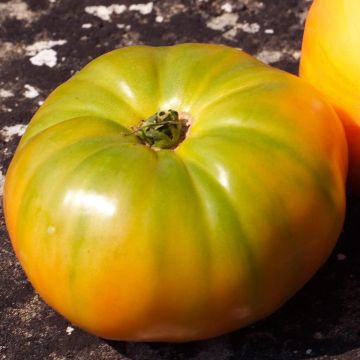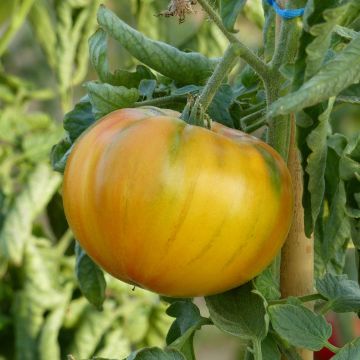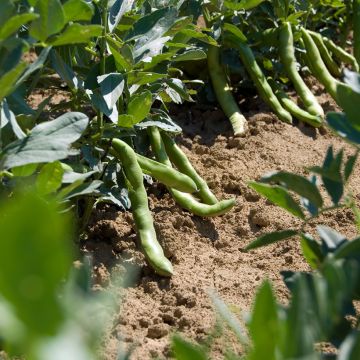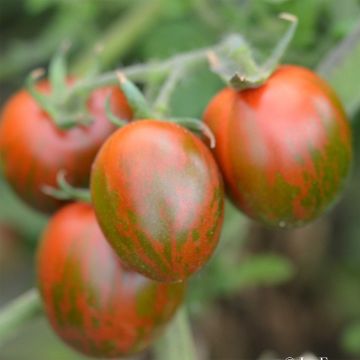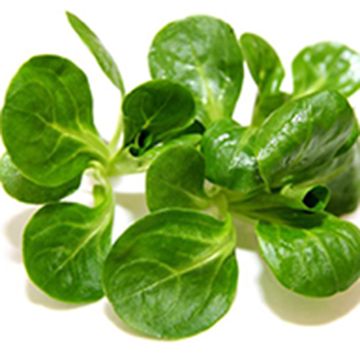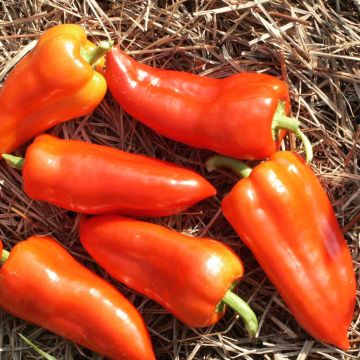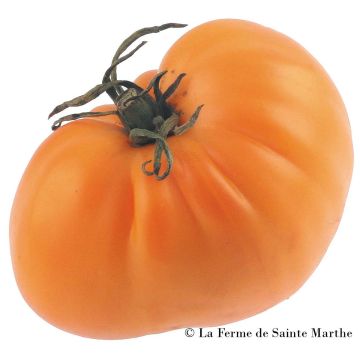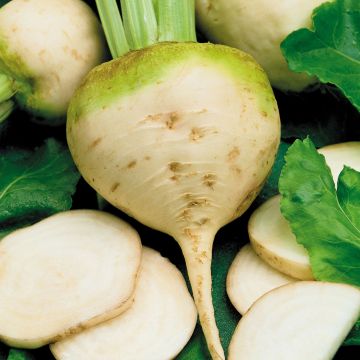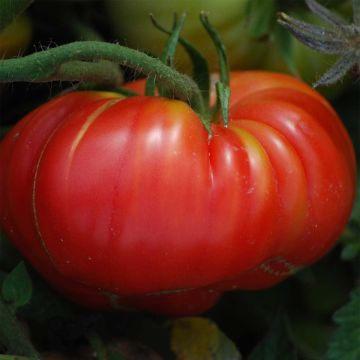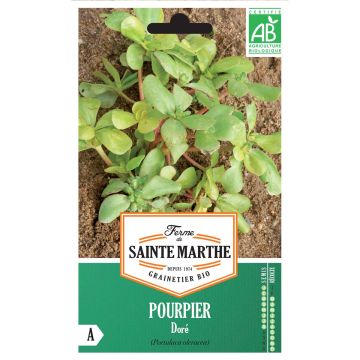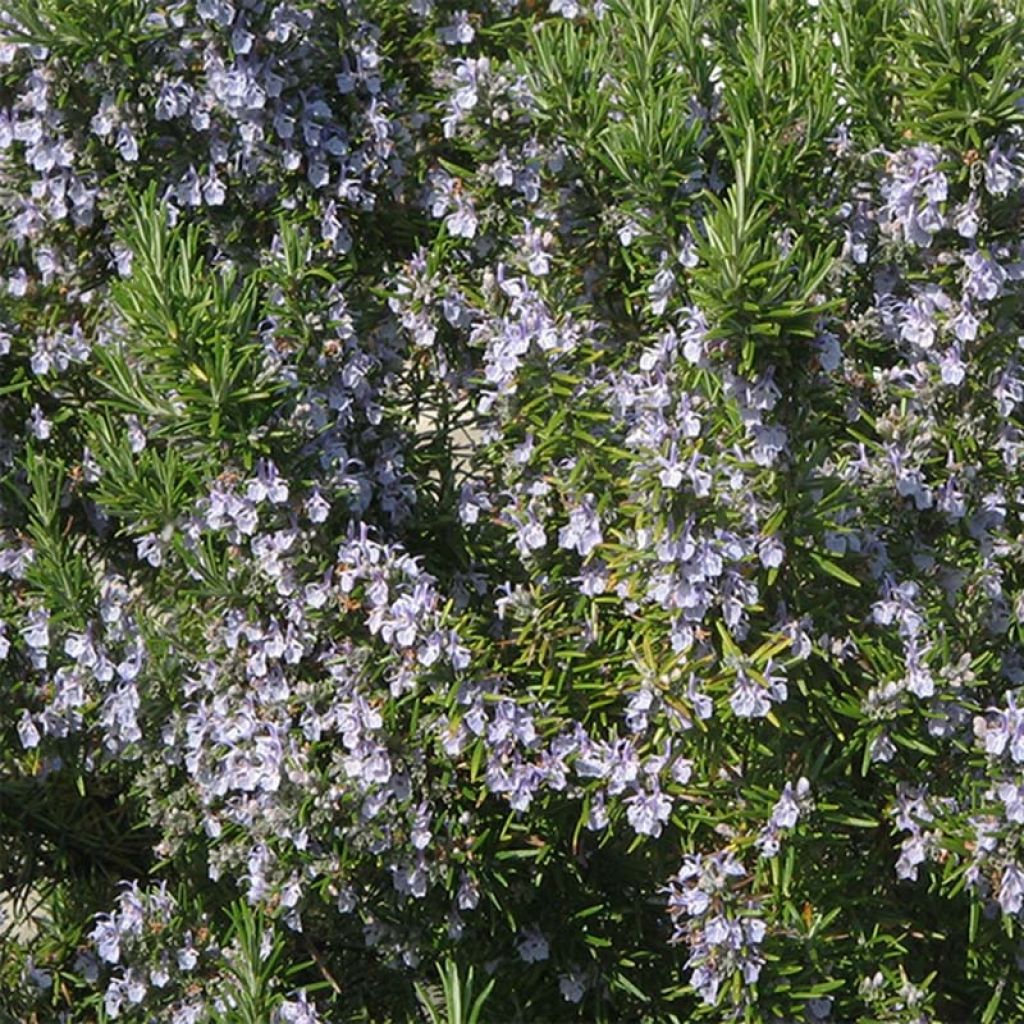

Organic Rosmarinus officinalis - Rosemary
Organic Rosmarinus officinalis - Rosemary
Rosmarinus officinalis
Rosemary
It's growing, it's growing, thank you to the team
Nath44, 31/08/2025
Special offer!
Receive a €20 voucher for any order over €90 (excluding delivery costs, credit notes, and plastic-free options)!
1- Add your favorite plants to your cart.
2- Once you have reached €90, confirm your order (you can even choose the delivery date!).
3- As soon as your order is shipped, you will receive an email containing your voucher code, valid for 3 months (90 days).
Your voucher is unique and can only be used once, for any order with a minimum value of €20, excluding delivery costs.
Can be combined with other current offers, non-divisible and non-refundable.
Home or relay delivery (depending on size and destination)
Schedule delivery date,
and select date in basket
This plant carries a 6 months recovery warranty
More information
We guarantee the quality of our plants for a full growing cycle, and will replace at our expense any plant that fails to recover under normal climatic and planting conditions.

Description
Rosemary, in Latin Rosmarinus officinalis, is an evergreen Mediterranean shrub renowned for the flowery aroma of its small leaves. It perfumes grilled dishes and brightens Mediterranean cuisine. It is used alone or in a bouquet garni, combined with parsley, bay leaf, and thyme, and is part of aromatic blends called "herbes de Provence". An excellent plant for arid rock gardens and dry soil, highly nectar-producing, Rosemary is grown in open ground or in pots, in spring or autumn, for a harvest from April to October. We offer plants derived from organic production methods.
Rosemary is a perennial shrub and is relatively hardy if planted in rocky soil that does not retain water. It belongs to the Lamiaceae family, like thyme. This plant, native to the Mediterranean, forms small fragrant tufts with dark green persistent foliage. From the beginning of the year, and sometimes again in autumn, it produces small, highly honey-producing flowers in spikes, in blue, purple, pink, or white, depending on the varieties.
Fresh or dried leaves are used to flavour slow-cooked dishes such as ratatouille, as well as fish, poultry, game, vegetables, and pasta. They can be used alone or in a bouquet garni, combined with parsley, thyme, and bay leaf. It is part of the composition of mixed seasonings, together with various plants such as thyme, oregano, marjoram, basil, chervil, tarragon, lovage, savory, sage, bay leaf, and fennel. Rosemary has antiseptic, antibacterial and digestive properties.
It will easily find its place in the garden but can also be grown in a pot, placed on a balcony or at the edge of a terrace. Plant it next to other aromatics such as savory or thyme. Rosemary is not demanding, it thrives in sunny, arid, and rocky soils, with a tendency towards limestone, like most lavenders. However, it is sensitive to excess moisture, both in winter and summer.
Harvest: Leaves are harvested from the 2nd year, from April to October, by simply cutting the branches.
Storage: Leaves can be used fresh or dried. Dry the branches in the shade and store them dry in airtight jars.
Gardener's tip: In moist regions, we recommend planting on a mound, in a rock garden, or on a rocky slope, in very well-draining soil. Protecting the base from the cold is unnecessary, as this shrub is unable to regenerate from the stump. Never prune branches below the last green leaf you can see: old wood does not regenerate.
Report an error about the product description
Organic Rosmarinus officinalis - Rosemary in pictures
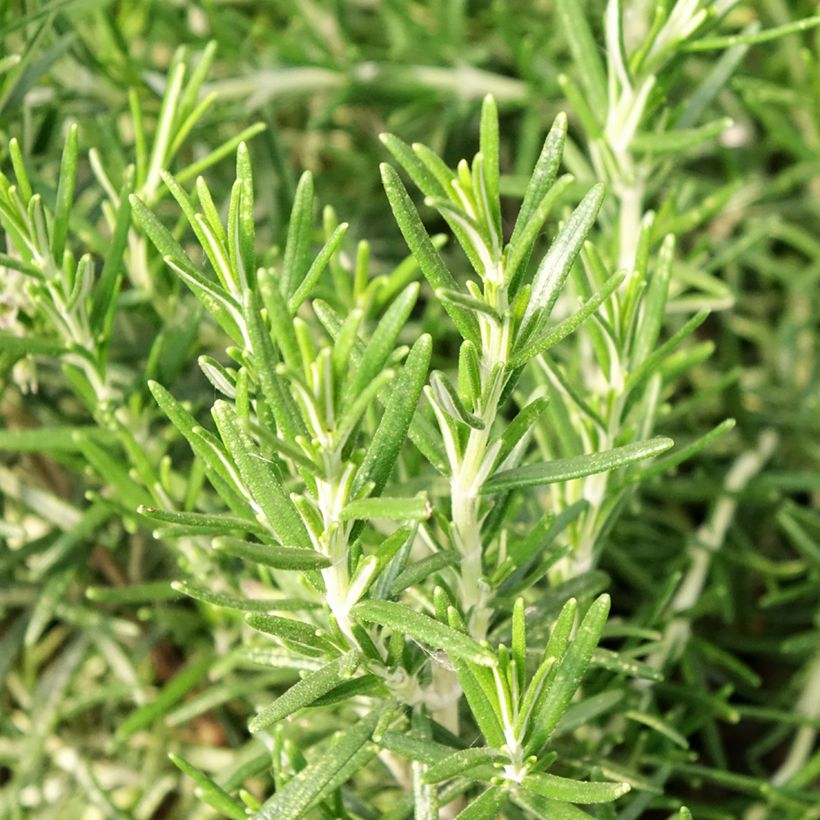

Harvest
Plant habit
Foliage
Other Vegetable plants A to Z
View all →Planting and care
Rosemary is not demanding, it thrives in sunny, arid and rocky soils, with a tendency towards limestone and full sun. However, it is sensitive to excess moisture, both in winter and summer. The planting of young plants is done in spring (March-April) or at the end of summer (August-September).
In open ground: First, let the plug plants grow by transplanting them into trays or 8 to 13 cm (3 to 5 in) diameter pots filled with potting soil. Place them in a warm and bright location. Water regularly, but not excessively: let the substrate dry out a bit between waterings. For planting in open ground, choose a very sunny exposure. Space the plants 80 cm (32 in) apart in all directions. Dig a hole, place the root ball and cover with soil. Firmly tamp down and lightly water. If your soil is moist, place some gravel at the bottom of the planting hole, cover with a bit of soil, place in the root ball and fill in the hole.
In a pot: Place a layer of gravel or clay pellets at the bottom of the pot to facilitate drainage. Fill the pot with a mixture of potting soil and garden soil. Very delicately place the plug plant in the pot, cover it with soil and firm down well. Do not water excessively, always allowing the substrate to dry out a bit between waterings. Place your pot in the sun. Do not let water stagnate in the saucer.
As for maintenance, in open ground, water abundantly every 15 days only during the first summer, or possibly also the second. Afterwards, it will be unnecessary, even discouraged, to water it in summer. Indeed, Rosemary is a plant of scrub vegetation that dislikes soils that are both hot and constantly moist. Hoe and weed around the young plants. Later on, this will become unnecessary, as Rosemary is a very competitive plant that produces substances capable of inhibiting the germination and growth of "weeds" near its stump.
An annual pruning (on the current year's growth) will maintain a nice rounded and stocky habit.
Cultivation
Care
Intended location
-
, onOrder confirmed
Reply from on Promesse de fleurs
Similar products
Haven't found what you were looking for?
Hardiness is the lowest winter temperature a plant can endure without suffering serious damage or even dying. However, hardiness is affected by location (a sheltered area, such as a patio), protection (winter cover) and soil type (hardiness is improved by well-drained soil).

Photo Sharing Terms & Conditions
In order to encourage gardeners to interact and share their experiences, Promesse de fleurs offers various media enabling content to be uploaded onto its Site - in particular via the ‘Photo sharing’ module.
The User agrees to refrain from:
- Posting any content that is illegal, prejudicial, insulting, racist, inciteful to hatred, revisionist, contrary to public decency, that infringes on privacy or on the privacy rights of third parties, in particular the publicity rights of persons and goods, intellectual property rights, or the right to privacy.
- Submitting content on behalf of a third party;
- Impersonate the identity of a third party and/or publish any personal information about a third party;
In general, the User undertakes to refrain from any unethical behaviour.
All Content (in particular text, comments, files, images, photos, videos, creative works, etc.), which may be subject to property or intellectual property rights, image or other private rights, shall remain the property of the User, subject to the limited rights granted by the terms of the licence granted by Promesse de fleurs as stated below. Users are at liberty to publish or not to publish such Content on the Site, notably via the ‘Photo Sharing’ facility, and accept that this Content shall be made public and freely accessible, notably on the Internet.
Users further acknowledge, undertake to have ,and guarantee that they hold all necessary rights and permissions to publish such material on the Site, in particular with regard to the legislation in force pertaining to any privacy, property, intellectual property, image, or contractual rights, or rights of any other nature. By publishing such Content on the Site, Users acknowledge accepting full liability as publishers of the Content within the meaning of the law, and grant Promesse de fleurs, free of charge, an inclusive, worldwide licence for the said Content for the entire duration of its publication, including all reproduction, representation, up/downloading, displaying, performing, transmission, and storage rights.
Users also grant permission for their name to be linked to the Content and accept that this link may not always be made available.
By engaging in posting material, Users consent to their Content becoming automatically accessible on the Internet, in particular on other sites and/or blogs and/or web pages of the Promesse de fleurs site, including in particular social pages and the Promesse de fleurs catalogue.
Users may secure the removal of entrusted content free of charge by issuing a simple request via our contact form.
The flowering period indicated on our website applies to countries and regions located in USDA zone 8 (France, the United Kingdom, Ireland, the Netherlands, etc.)
It will vary according to where you live:
- In zones 9 to 10 (Italy, Spain, Greece, etc.), flowering will occur about 2 to 4 weeks earlier.
- In zones 6 to 7 (Germany, Poland, Slovenia, and lower mountainous regions), flowering will be delayed by 2 to 3 weeks.
- In zone 5 (Central Europe, Scandinavia), blooming will be delayed by 3 to 5 weeks.
In temperate climates, pruning of spring-flowering shrubs (forsythia, spireas, etc.) should be done just after flowering.
Pruning of summer-flowering shrubs (Indian Lilac, Perovskia, etc.) can be done in winter or spring.
In cold regions as well as with frost-sensitive plants, avoid pruning too early when severe frosts may still occur.
The planting period indicated on our website applies to countries and regions located in USDA zone 8 (France, United Kingdom, Ireland, Netherlands).
It will vary according to where you live:
- In Mediterranean zones (Marseille, Madrid, Milan, etc.), autumn and winter are the best planting periods.
- In continental zones (Strasbourg, Munich, Vienna, etc.), delay planting by 2 to 3 weeks in spring and bring it forward by 2 to 4 weeks in autumn.
- In mountainous regions (the Alps, Pyrenees, Carpathians, etc.), it is best to plant in late spring (May-June) or late summer (August-September).
The harvesting period indicated on our website applies to countries and regions in USDA zone 8 (France, England, Ireland, the Netherlands).
In colder areas (Scandinavia, Poland, Austria...) fruit and vegetable harvests are likely to be delayed by 3-4 weeks.
In warmer areas (Italy, Spain, Greece, etc.), harvesting will probably take place earlier, depending on weather conditions.
The sowing periods indicated on our website apply to countries and regions within USDA Zone 8 (France, UK, Ireland, Netherlands).
In colder areas (Scandinavia, Poland, Austria...), delay any outdoor sowing by 3-4 weeks, or sow under glass.
In warmer climes (Italy, Spain, Greece, etc.), bring outdoor sowing forward by a few weeks.






























